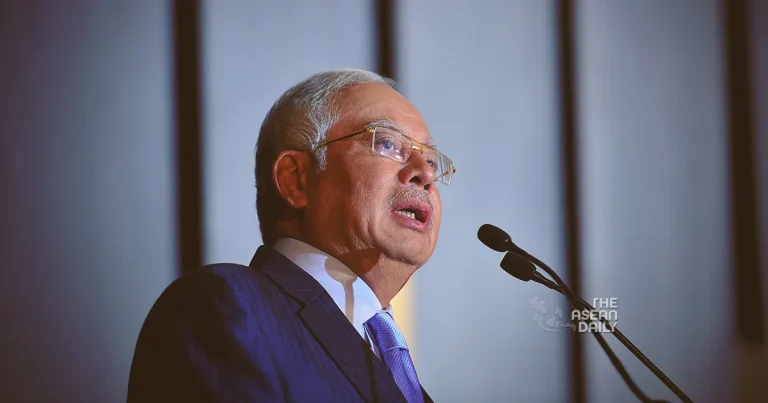31-1-2024 (KUALA LUMPUR) Former Malaysian Prime Minister Najib Razak’s prison sentence for corruption has been reduced from 12 to 6 years, according to official sources. The decision was made by the Pardons Board, headed by Malaysia’s king, during their meeting on Monday (Jan 29). Along with the sentence reduction, Najib’s fine of RM210 million (US$44.4 million) has also been lowered to an unspecified amount.
Najib Razak, who was convicted in 2020 for corruption charges related to the 1MDB scandal, began serving his prison term in August 2022. This move comes after he has spent less than two years in prison.
With the new sentence, Najib is expected to complete his jail term in August 2028. However, if he demonstrates good behavior, he could be eligible for parole and released in August 2026, after serving two-thirds of the revised sentence.
Speculation regarding the potential pardon had been circulating, and it was confirmed by Dr. Zaliha Mustafa, Minister in the Prime Minister’s Department (Federal Territories), that the Pardons Board had met on Monday. An official announcement from the Pardons Board is anticipated.
The meeting was one of Sultan Abdullah Ri’ayatuddin’s final official duties before stepping down as Malaysia’s king on Jan 31. The role of king was then handed over to Johor ruler Sultan Ibrahim Sultan Iskandar, in accordance with Malaysia’s unique rotation system for its nine royal state households.
While Najib’s lead counsel, Muhammad Shafee Abdullah, stated that he has not been informed of any decision by the Pardons Board.
Najib Razak, the former president of the United Malays National Organisation (UMNO), is still believed to wield significant influence within the party, which is part of Prime Minister Anwar Ibrahim’s unity government. He served as Malaysia’s prime minister for nine years until May 2018 and became the country’s first prime minister to be imprisoned. His conviction stemmed from the transfer of RM42 million from SRC International, a former subsidiary of 1MDB, into his personal bank accounts between 2014 and 2015.
In July 2020, the High Court found Najib guilty of three counts of criminal breach of trust, three counts of money laundering, and one count of abuse of power. He was sentenced to 12 years in jail and fined RM210 million, which remains unpaid. Additionally, Najib faces several other charges related to the 1MDB scandal, including the laundering of RM27 million involving funds from SRC International. His legal team has applied to dismiss this money laundering case, and the court has granted him the option to apply for an acquittal or a discharge not amounting to an acquittal if the prosecutors are not prepared to proceed with the trial in September.
The 1MDB scandal, which originated during Najib’s tenure as prime minister, became one of Malaysia’s biggest corruption scandals and had significant implications for the international financial community. It is estimated that over US$4.5 billion was misappropriated from the fund, with approximately US$1 billion ending up in accounts linked to Najib.
Shortly after Najib began his prison sentence at the Federal Prison of Kajang in August 2022, he applied for a royal pardon. His lead counsel, Shafee, submitted a fresh application in December 2023 for the Pardons Board to reconsider the clemency request. Certain members of the board reportedly had a change of heart, leading to the meeting in December, which was later deferred to January.
Malaysia operates under a constitutional monarchy system, granting the king the final authority in granting pardons to convicted criminals. This system resembles that of neighboring Thailand.
The reduction of Najib Razak’s jail term has drawn comparisons to another high-profile royal clemency case in Malaysia. In May 2018, the then-king, Sultan Muhamad V of the Kelantan royal household, granted a full pardon to Anwar Ibrahim, who was serving a five-year prison sentence for alleged sexual misconduct. Anwar had previously filed two separate petitions for a royal pardon in 2015 and 2017, both of which were rejected by the Pardons Board.




